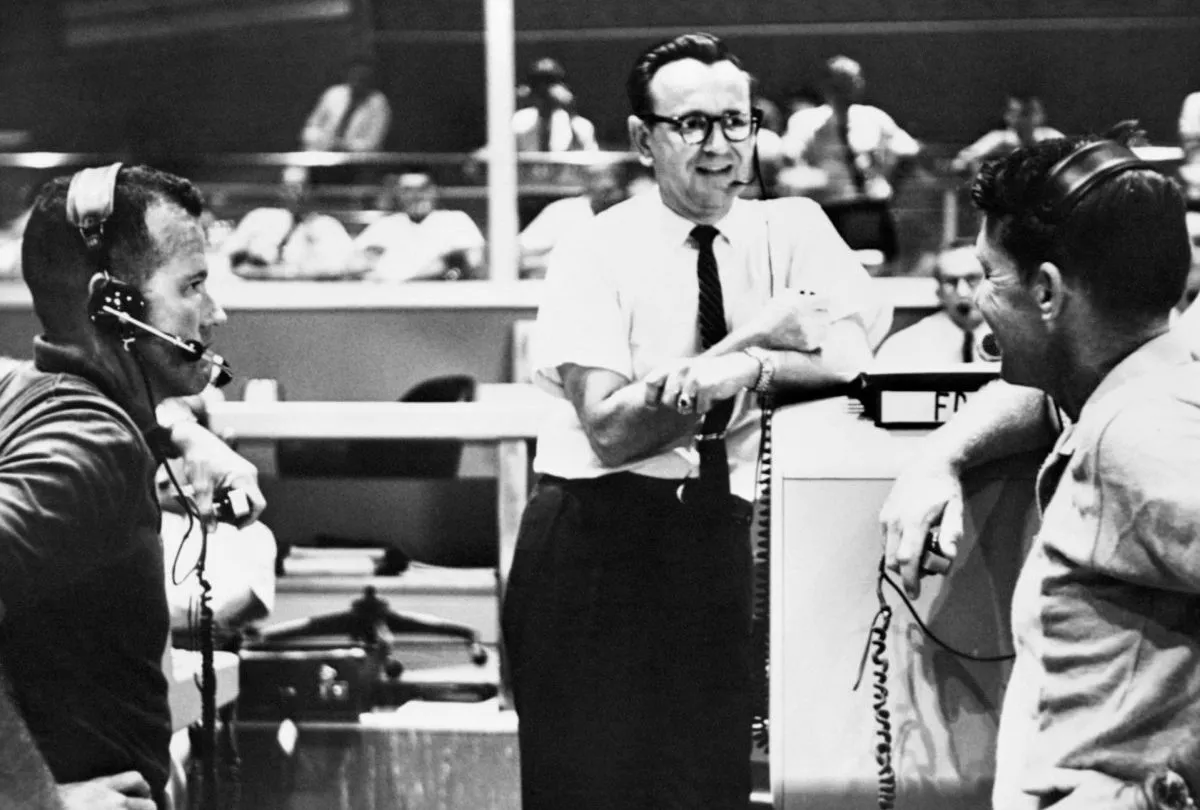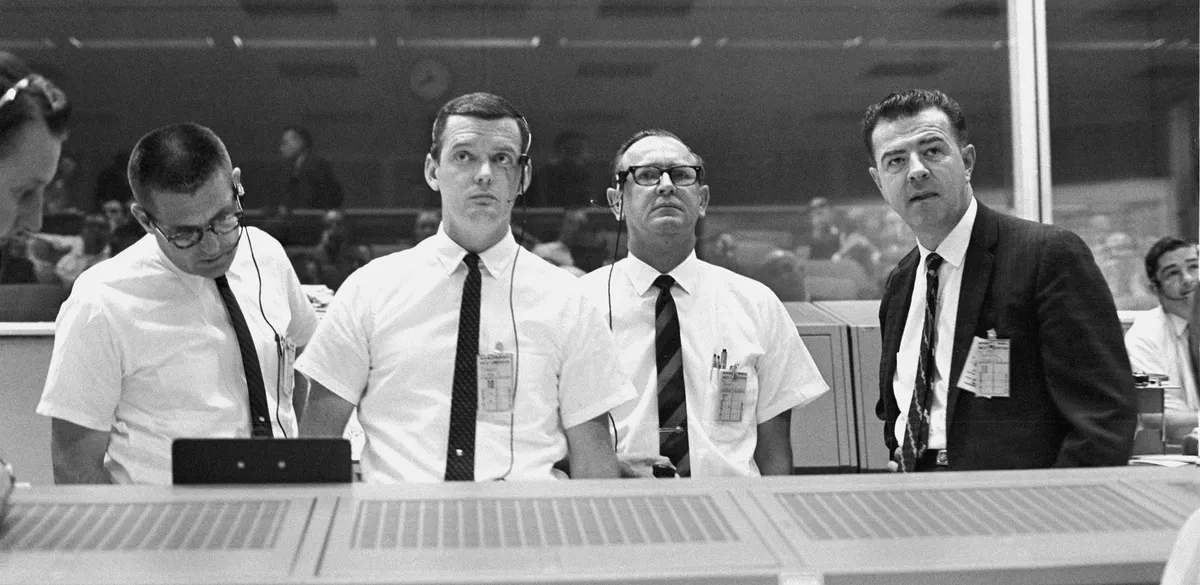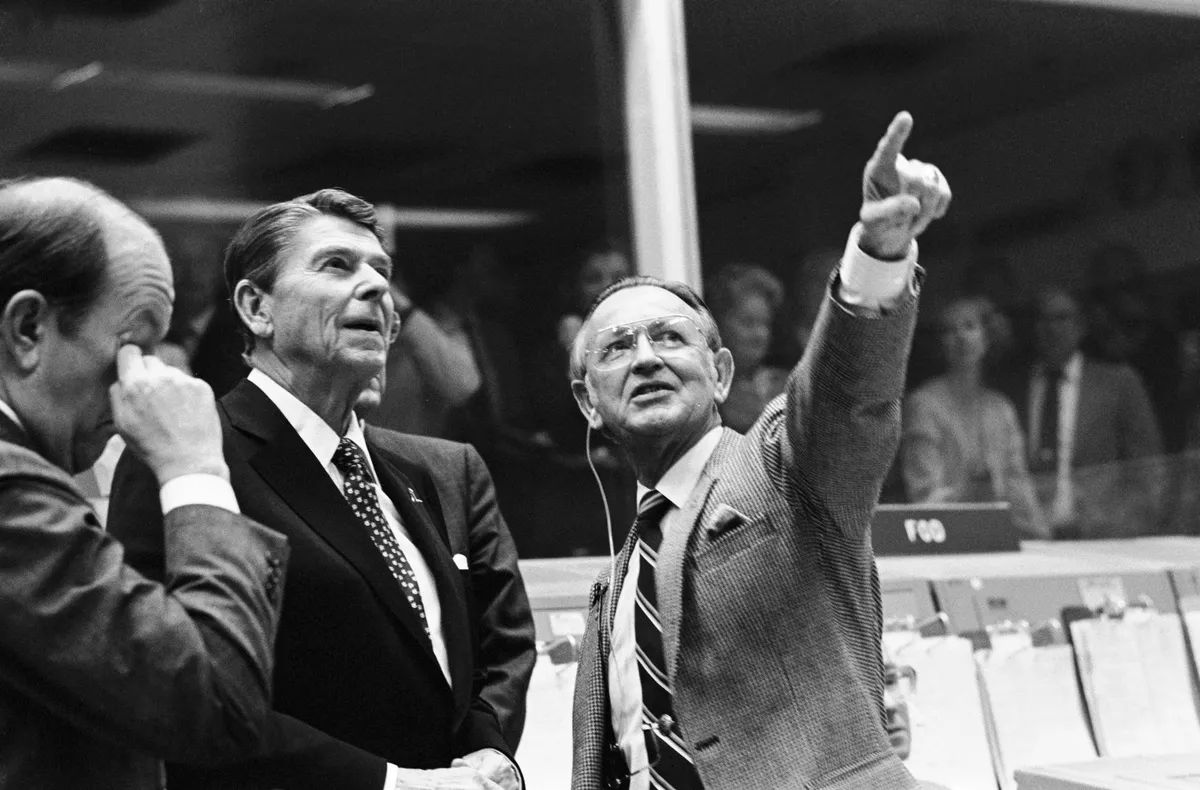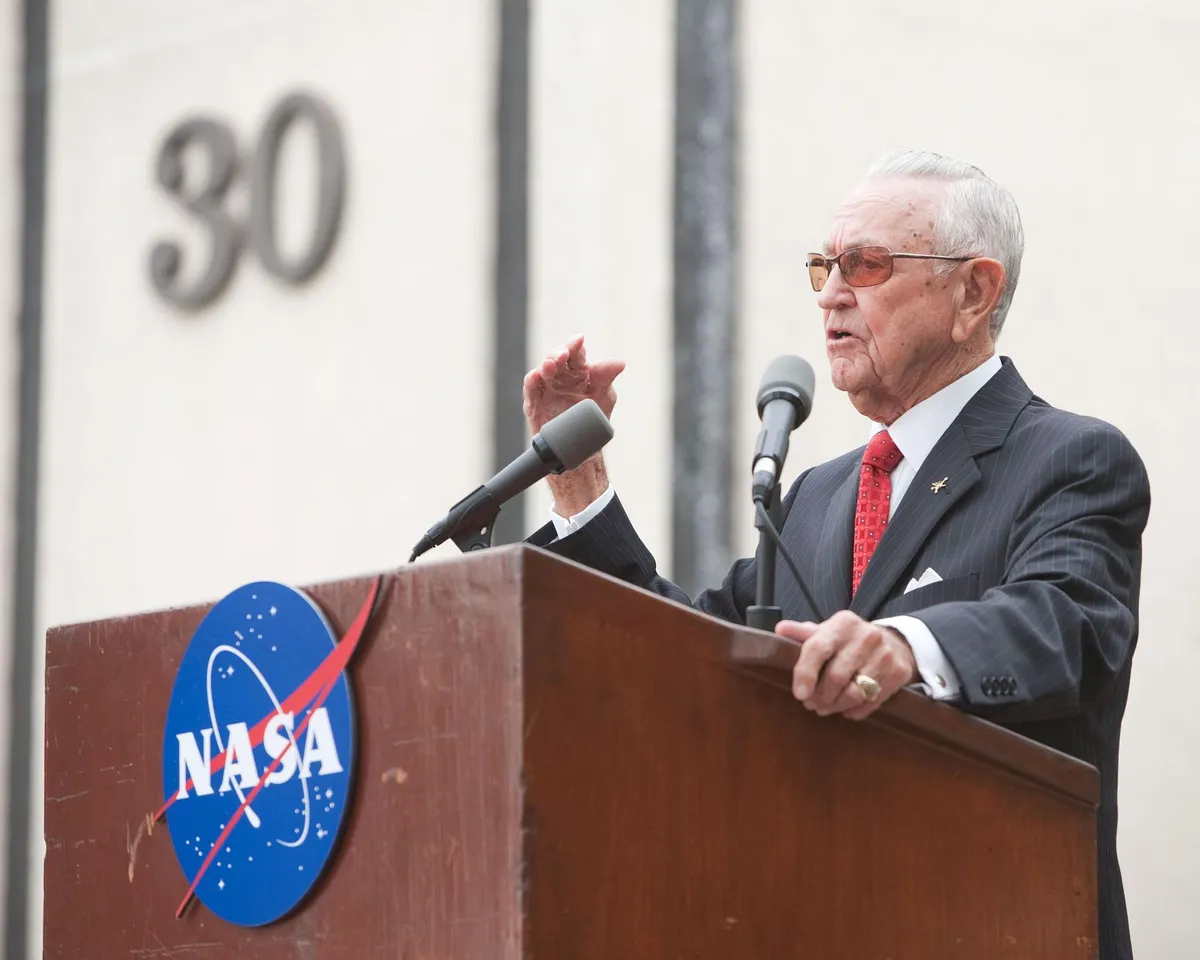Chris Kraft, NASA's first flight controller, has died aged 95, just two days after the agency celebrated the 50th anniversary of the Apollo 11 Moon landing.
Kraft - whose full name was Christopher Columbus Kraft Jr - was a NASA visionary who founded the core procedures that made up mission control.
He was a vital member of the team that got humans to the Moon. Neil Armstrong once called Kraft "the man who was in 'control' of mission control".

Many important decisions fell to Kraft during mission, such as whether to go ahead with a launch should conditions become unfavourable and what to do if a problem arose.
Amid the Apollo programme, Kraft became director of operations at The Manned Spacecraft Center. During this time he was responsible for overall human spaceflight preparations including training and delivery.
Kraft's skills and expertise were acknowledged during Apollo 12 as he was given the role of deputy director of the centre and from 1972 he took on the role of director of the Manned Spacecraft Centre; now known as the Johnson Space Center.
He led a team of young pioneers to places that no one had gone before and, in the process, inspired and united the people of the world. He defined Mission Control and the way we go about exploring space today, laying the foundation for many missions to come. We can only try to follow in his giant footsteps as we focus once again on reaching out beyond our world.
Dr. Mary Lynne Dittmar, president and CEO of the coalition for deep space exploration
As directo, Kraft played a crucial part in the final Apollo missions, the Skylab crewed space station and the Apollo-Soyuz Test Project. Kraft also saw in the beginning of the Space Shuttle era.
Kraft carried out his role as director until retirement in August 1982, after which time he remained a consultant.
His contribution to human spaceflight was honoured by NASA via various awards including the NASA Outstanding Leadership Medal and four NASA Distinguished Service Medals.

Kraft was born 28 February 1924 in Phoebus, Virginia, now a part of Hampton.
During his high school years Kraft was interested in baseball and drum and bugle corps. After high school he enrolled in mechanical engineering at Virginia Polytechnic Institute (now Virginia Tech) in 1941.
In 1942 Kraft tried to sign up to the military but was told he was unfit for service due to his right hand being severely burnt as a child.
However, Kraft credits his experiences in the military Corps of Cadets at the institute for providing him with strong foundations in leadership that would then go on to benefit him during his NASA career.

In 1950 Kraft married his high school sweetheart, Betty Anne Turnbull. He leaves behind a son and a daughter, Gordon and Kristi-Anne.

